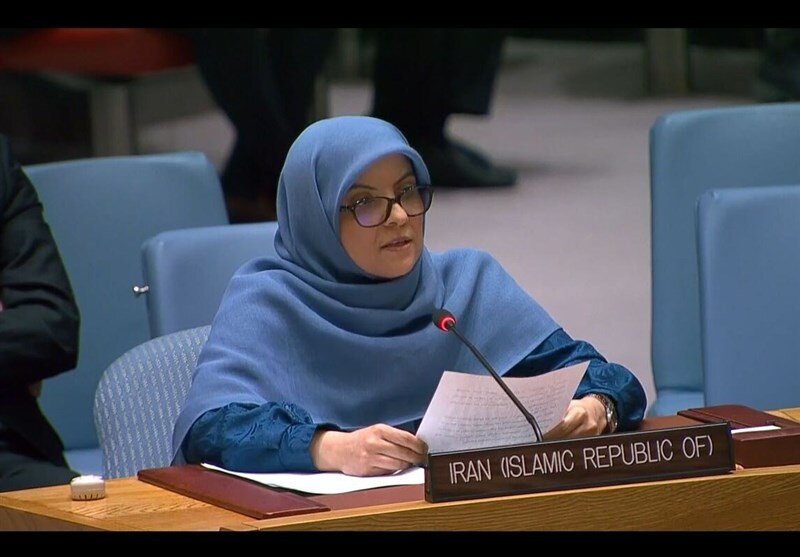Iranian envoy urges UN's Pact of the Future to address Gaza crisis

TEHRAN – During a recent United Nations meeting in New York, Iran's Deputy Permanent Representative to the UN, Zahra Ershadi, emphasized the need for the Pact of the Future—a key document emerging from the UN Summit of the Future—to confront pressing issues such as the Zionist regime’s genocidal actions in Gaza, nuclear proliferation, and foreign occupation.
Speaking on October 6, Ershadi urged that the Pact must adequately address the ongoing humanitarian crises in Gaza and Lebanon, highlighting the urgent need for international intervention.
Israel’s ongoing offensive on the Gaza Strip has so far led to the killings of nearly 42,000 people, mostly women and children, according to the enclave’s health authorities.
Ershadi began her address by asserting Iran's commitment to the Summit of the Future as a vital forum for tackling global challenges and enhancing the effectiveness of the UN. However, she criticized the Pact for failing to meet its ambitious goals and for not reflecting the realities of international law violations. She expressed disappointment that Iran's concerns were overlooked in the drafting process, reiterating points made in an official statement submitted on September 21.
"The Pact for the Future lacks a balanced perspective," Ershadi stated, lamenting its failure to address the root causes of violations of international law. She pointed out that despite visible acts of genocide, the document neglects immediate threats such as nuclear weapons and foreign occupation, diverting focus to less critical issues.
Moreover, Ershadi condemned the absence of measures to combat unilateral coercive measures (UCMs) and economic sanctions, which she argued undermine the rights and sovereignty of developing nations. She called for urgent action to remove these impediments to development and human rights.
Iran maintains that national sovereignty should guide development paths and opposes any parts of the Pact that contradict its national laws and cultural values. "We dissociate ourselves from specific provisions in the Global Digital Compact that do not respect the sovereignty of states," she noted.
Addressing environmental issues, Ershadi criticized the Pact for inadequately addressing the responsibilities of developed countries in combating climate change. She called for unconditional support for developing nations and stressed the importance of recognizing their unique contexts in discussions about transitioning away from fossil fuels.
Ershadi also raised concerns about the potential politicization of the UN's human rights mechanisms and emphasized the need for a balanced approach to various issues, including digital governance and the role of technology companies.
In her closing remarks, she urged that the Pact be more inclusive and equitable, advocating for a collaborative approach to new technologies that respects cultural diversity. She called for the document to reflect the principles of the UN Charter, stressing that the obligations contained within should not violate the sovereignty of states.
In summary, Ershadi's statements at the UN underscore Iran's call for a more responsible and equitable international framework capable of addressing both humanitarian crises and the broader challenges facing the global community.
